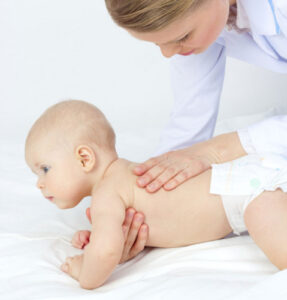SHARE WITH FRIENDS:
Baby's skin
A child's skin is different from an adult's, so it is necessary to pay special attention to the child's skin.
First, the child's sweat glands are not developed. Therefore, the child releases heat from his body not through sweat, but through his lungs. Dry or hot air prevents the release of body heat through the lungs, and puts pressure on the child's underdeveloped sweat glands, causing damage to the child's skin.
Secondly, the uppermost part of the skin of a child is thinner than that of an adult. Therefore, minor chemical or mechanical damage can have a severe effect on the child's skin.
Thirdly, the baby's skin is rich in oils (lipids). These oils break down substances that are harmless to adults (chemical dust, urine, baldness) on the child's skin, causing inflammation to form easily.
Friends of baby skin:
1. A room with a temperature of around 20 degrees and a humidity level of 50-70%;
2. Clothing made of quality cotton fiber;
3. Being naked - the child's skin should be in contact with fresh air;
4. Wet sanitary napkins;
Enemies of baby skin:
1. Dry and hot weather;
2. Urine and feces;
3. Chemical substances in contact with the skin (detergents, chlorinated water, synthetic clothing, poor-quality care products);
4. Soap not intended for children's skin;
5. Factors causing mechanical damage: rubbing against clothes, crawling on the carpet, lack of hygiene.
As for creams, lotions, oils, these substances should be used only if necessary, that is, if you want to go out on a winter day, it is better to apply a special cream that prevents dryness on the exposed areas of the child's skin. Areas where the child's skin is in constant contact with urine and feces should also be cared for with special means.
But it is not necessary to use various creams and lotions if there is no need. After bathing the newborn baby, it is enough to care for it with simple sterilized vegetable (olive) oil.
